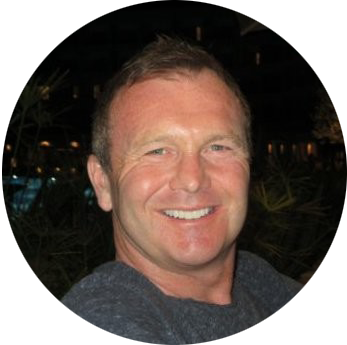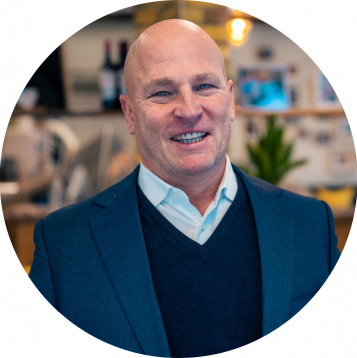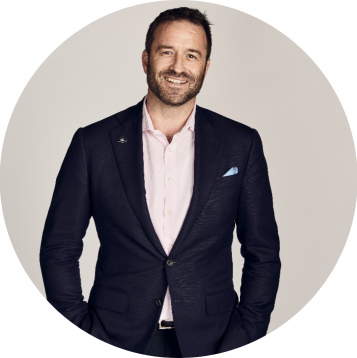We were delighted to host a number of Sullivan & Stanley’s CxO network in MENA for our inaugural breakfast, to discuss the topic of sustainability. We explored the question “How do companies integrate sustainability into their core business strategy and operations, and what are the measures of success?”
The session kicked off with a hugely insightful and thought-provoking presentation by our guest speaker Karl W. Feilder. Karl is the founder of Neutral Fuels, ex-Head of Global Climate Change Strategy for DHL, and architect of McDonald’s carbon reduction program for Asia Pacific Middle East Africa. He is a long-term environment and sustainability advocate. Karl is also a guest lecturer on Sustainability at the Hult International Business School.
Karl’s presentation was intuitive, keeping those in attendance engaged throughout. Karl discussed a number of key topics from Net Zero to the re-evaluation of the UN’s sustainability goals. This was then followed by a Q&A session that could have extended into the late morning if commitments allowed and definitely left the audience wanting more.
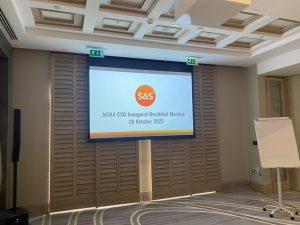
Net Zero is not enough
Firstly, Karl explored Net Zero. The Paris Agreement sought to keep the global temperature rise below 1.5oC – but we are likely to reach that figure this year.
The Increase of Global Greenhouse Gas emissions (CO2e)
The first COP (Conference of the Parties) took place in 1995. There have been 27 COP meetings since then with the next one taking place shortly in the UAE. Despite resolving to reduce them, since 1992 there has been a 66% increase in global CO2e Emissions.
Shifting Responsibility from Consumers to Corporates
Climate change is a result of business decisions and therefore a change to business decisions rather than consumer decisions is the required action. This is reflected in the new COP28 Net Zero Transition Charter which all CxO members should review.
A small number of global companies are responsible for a large part of the emissions problems. 71% of the global CO2e output between 1988 to 2017 was caused by just 100 companies.
Re-evaluating UN’s Sustainable Development Goals
The UN’s sustainable development goals are these fit for purpose when it comes to sustainability and climate change or are they too complicated? We need S.M.A.R.T and sensible goals? After all, you can’t manage what you can’t measure.
What’s the point in many of the worthy sustainable development goals, if people can’t put food and water on the table or a roof over their heads, due to climate change? It isn’t about gestures and perception. The end-to-end impact of any business decisions needs to be considered, and those relating to sustainability are a minefield. Even with the best intentions, messaging can have significant unexpected implications and there are a number of examples of initiatives back-firing.
The Need for Detailed Reporting
Current leading practice doesn’t go far enough a generic statement of sustainability in annual reports is not effective, as the reporting needs to more granular. According to the leading GHG Protocol corporate standard, a company’s greenhouse gas emissions are classified into three scopes. Scope 1 and 2 are mandatory to report, whereas Scope 3 is currently voluntary and the hardest to monitor. But for Net Zero, we need to look further than Scope 1 and 2 emissions and more closely at the downstream impacts of Scope 3 indirect emissions to give the real picture.
No Silver Bullet
Lastly, the discussion acknowledges that there is no single solution to the climate crisis, urging a cessation of the search for a “silver bullet” and advocating for a multifaceted and transparent approach to environmental accountability.
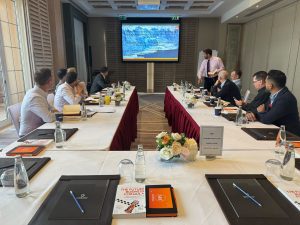
What can organisations do?
Objective Decision Making
Take politics and emotion out of decision making. Make it a normal business decision, including taking into account profit and money – you can’t make sustainability decisions and choices in isolation.
Structured Approach
A structured approach is required. Companies need to understand their footprint, look at how they can reduce it and drive efficiencies, replace out of date approaches and technology and then look at offset to be successful in this area. Karl proposed Assess, Reduce, Replace, Offset to Win – the sequential ARROW process.
Sustainability Linked to KPIs
Sustainability should be intertwined with Key Performance Indicators (KPIs) and performance metrics. If we can link KPIs to a financial incentive system for executives it will help drive the desired actions and behaviours. Make sustainability a business decision and always consider the bottom line.
Net Zero Strategy
All businesses need to have a credible Net Zero strategy. They need to work with governments around the policies and targets to understand how this might impact your business.
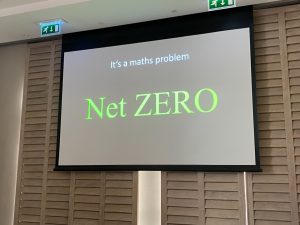
Hiring the Right Talent
Employ the right people to understand what the data is telling you and put in place an effective strategy. Net Zero strategy is a maths problem, hence sustainability teams need engineers, mathematicians and scientists. “Accountants count money and carbon reduction engineers save money.”
The CxO breakfast emphasised the shift towards corporate responsibility in sustainability. It advocates for a multifaceted approach that includes detailed reporting, objective decision-making, and aligning sustainability with business strategies and KPIs. This involves cultivating the right talent and developing robust Net Zero strategies in alignment with governmental policies, ensuring that businesses play a pivotal role in global carbon reduction and environmental accountability.
STAY UP TO DATE
Sign up to our monthly newsletter The Pulse to stay up to date on all things S&S . Or follow us on LinkedIn and Twitter to stay up to date about all things transformation.































